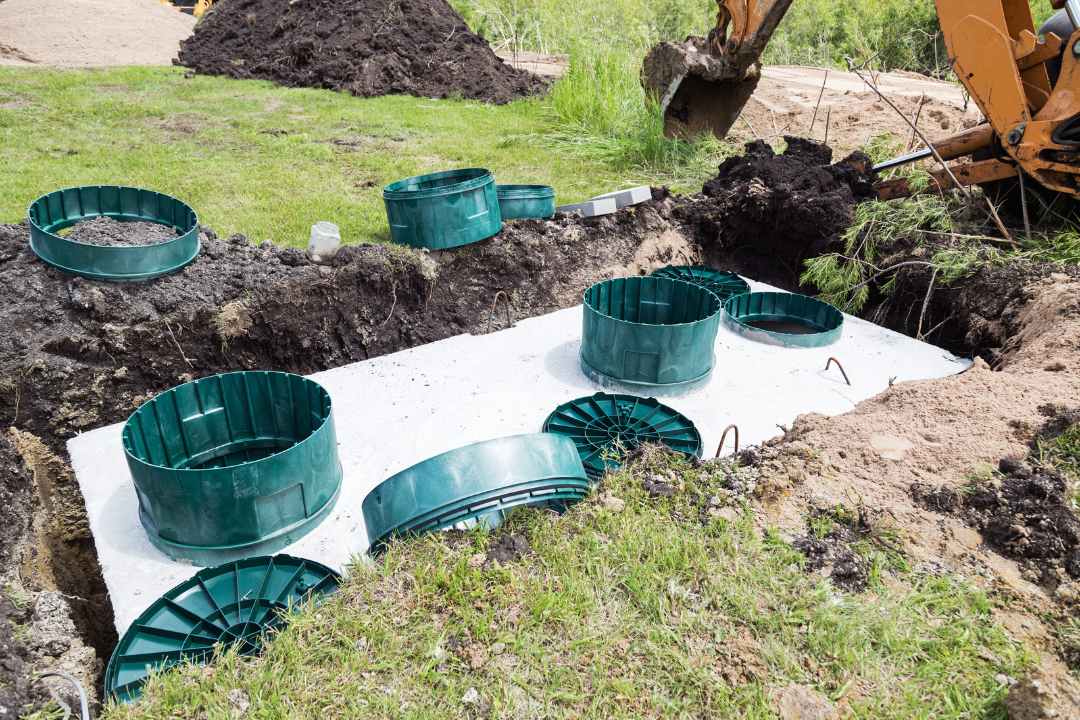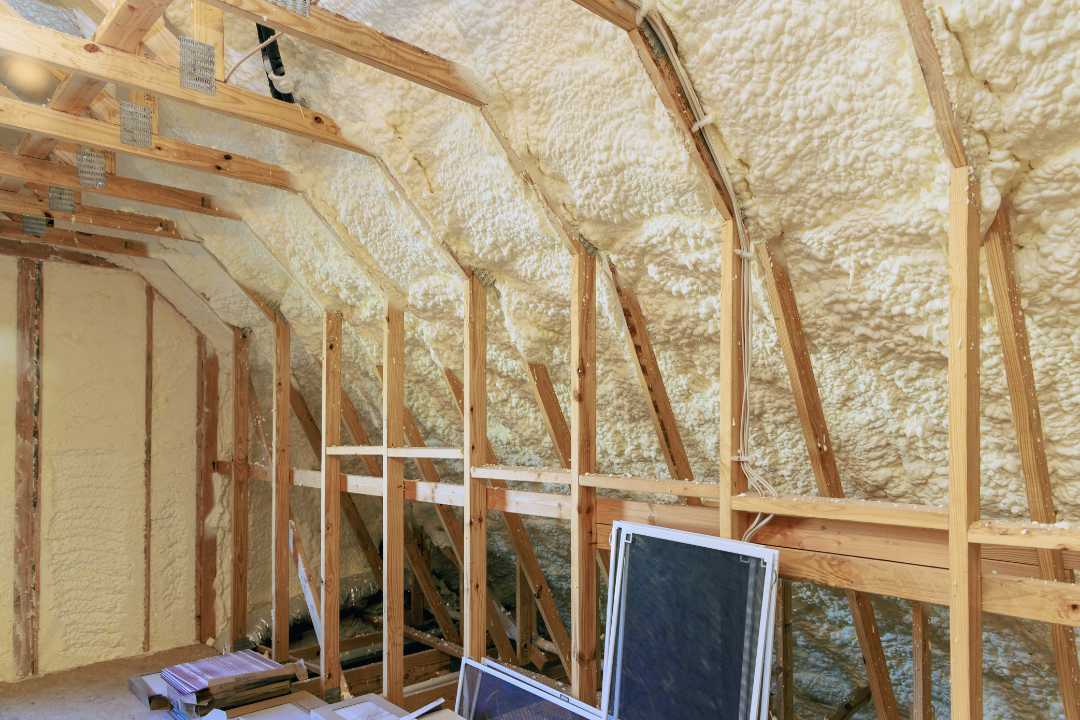Septic systems are essential for homes that aren’t connected to a city sewage system, and choosing the right one for your Tulsa home is a big decision. While traditional septic systems are still widely used, aerobic septic systems are becoming increasingly popular due to their efficiency and environmental benefits.
If you’re considering installing or upgrading your septic system, it’s important to understand the top reasons to choose an aerobic septic system for your Tulsa home. In this article, we’ll explore how these systems work, why they’re a good fit for Tulsa’s unique conditions, and the long-term benefits they offer.
What is an Aerobic Septic System?
Before diving into why an aerobic septic system might be the best choice for your Tulsa home, it’s important to understand what it is. An aerobic septic system is a type of wastewater treatment system that uses oxygen to break down organic waste more efficiently than traditional systems, which rely on anaerobic (oxygen-free) processes.
In an aerobic system, an aerator pump introduces oxygen into the septic tank, which supports the growth of aerobic bacteria. These bacteria are more effective at breaking down waste, resulting in cleaner, safer effluent that can be dispersed into the environment without as much risk of contamination. Clearflow Septic provides expert solutions for maintaining these systems, ensuring optimal performance and environmental safety.
Top Reasons to Choose an Aerobic Septic System for Your Tulsa Home
1. Faster and More Efficient Waste Breakdown
One of the biggest reasons to choose an aerobic septic system for your Tulsa home is its superior ability to break down waste quickly and efficiently. Traditional anaerobic septic systems rely on bacteria that operate without oxygen, which can take longer to break down solids. Aerobic bacteria, on the other hand, thrive in oxygen-rich environments and can decompose waste at a much faster rate. This means your system can process more waste in less time, which can be particularly beneficial for larger households or homes that experience higher-than-average water usage.
2. Better for Tulsa’s Soil Conditions
Tulsa’s soil varies in composition, but many areas contain clay-heavy soil, which doesn’t drain as easily as sandy soil. This can make it challenging for traditional septic systems to function properly because the drain field may become saturated more quickly.
Aerobic septic systems are an excellent option for Tulsa homes because they produce cleaner effluent, which requires less filtering through the soil. This means that even if you have less-than-ideal soil for drainage, your system will still perform well without overwhelming the drain field.
3. Improved Water Quality
Because aerobic systems break down waste more thoroughly than traditional systems, the effluent they release into the environment is significantly cleaner. This is particularly important for homeowners in Tulsa who live near water sources such as rivers, lakes, or groundwater reserves. Reducing the level of contaminants in your septic system’s discharge helps protect the local water supply and keeps your property’s ecosystem healthier.
4. Environmentally Friendly Option
If you’re looking for an eco-friendly septic solution, an aerobic system is a great choice. As mentioned earlier, the aerobic process produces much cleaner effluent, which reduces the risk of groundwater contamination. By choosing an aerobic septic system for your Tulsa home, you’re not only ensuring a more efficient wastewater treatment process but also doing your part to protect the environment.
Additional Environmental Benefits:
- Less Water Waste: The effluent can sometimes be recycled for irrigation purposes, reducing water waste on your property.
- Reduced Odors: Aerobic systems minimize the foul odors commonly associated with septic systems because the waste is broken down more completely.
5. Longer Lifespan with Proper Maintenance
Another reason to consider an aerobic septic system is its potential for a longer lifespan compared to traditional systems. When properly maintained, these systems can last for decades. While the initial installation cost may be higher, the extended lifespan and efficiency of the system often offset these costs over time.
Regular inspections and maintenance are still necessary, but an aerobic system typically requires fewer repairs and replacements of major components, which can save you money in the long run.
6. Great for Properties with Limited Space
If you have a smaller property or limited space for a traditional drain field, an aerobic system can be an ideal solution. Since it produces cleaner effluent, the drain field doesn’t need to be as large to handle the wastewater. This makes aerobic septic systems particularly useful for homes with smaller yards or where space for a large drain field is restricted.
7. Compliance with Local Regulations
Tulsa and surrounding areas may have specific regulations regarding septic systems, particularly concerning the protection of groundwater. In some cases, aerobic septic systems may be required for homes located near sensitive environmental areas, such as lakes, rivers, or protected wetlands. By choosing an aerobic septic system, you can ensure that your home complies with these regulations while also providing the best possible wastewater treatment for your property.
How Does an Aerobic Septic System Work?
If you’re wondering how an aerobic septic system actually functions, here’s a simple breakdown of the process:
- Pre-Treatment Tank: Wastewater flows from your home into a pre-treatment tank, which acts like a traditional septic tank, allowing solids to settle and separate from liquids.
- Aeration Chamber: The liquid then moves into an aeration chamber, where oxygen is introduced through a pump. The oxygen-rich environment promotes the growth of aerobic bacteria, which break down the waste more thoroughly.
- Clarification Chamber: The treated water flows into a clarification chamber, where any remaining solids are allowed to settle.
- Dispersal: Finally, the cleaned effluent is either dispersed into a drain field or sometimes reused for irrigation, depending on your system setup.
Key Considerations Before Installing an Aerobic Septic System
While there are many advantages to choosing an aerobic septic system for your Tulsa home, there are a few factors to keep in mind:
- Cost: Aerobic systems tend to be more expensive to install than traditional septic systems due to their complexity and additional components, such as the aeration pump. However, the long-term savings in maintenance and potential repairs often justify the higher upfront cost.
- Maintenance Requirements: Aerobic septic systems require more regular maintenance than traditional systems. You’ll need to schedule routine inspections to ensure the aerator is functioning properly and that the system remains in balance. Fortunately, this extra maintenance typically pays off in terms of efficiency and longevity.
- Power Requirement: Unlike traditional systems, aerobic systems require electricity to power the aeration pump. If your area is prone to power outages, it may be worth considering a backup generator to keep your septic system running smoothly.
Conclusion
When it comes to maintaining a healthy, efficient septic system in Tulsa, an aerobic system is a smart choice for many homeowners. Whether you’re dealing with clay-heavy soil, concerned about water quality, or simply looking for a long-lasting and environmentally friendly option, the top reasons to choose an aerobic septic system for your Tulsa home are clear.
While the initial costs and maintenance requirements may be higher, the benefits of faster waste breakdown, cleaner effluent, and increased longevity make aerobic systems a valuable investment for the long-term health of your property. If you’re looking to upgrade your current septic system or installing one for the first time, an aerobic system may be exactly what you need.





